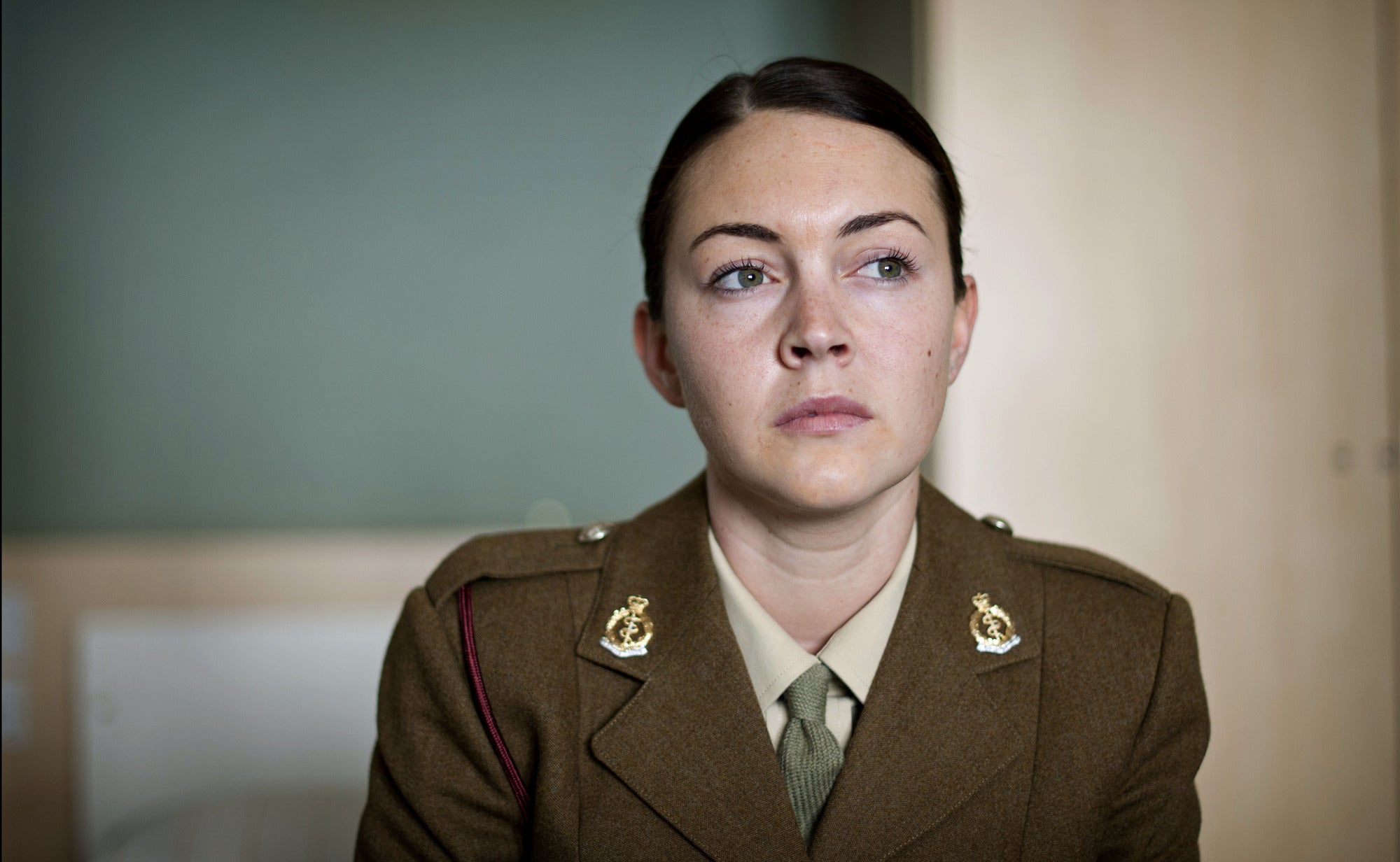TV review: Our Girl starring Lacey Turner, BBC1
Perspectives, Sun ITV

I'm not sure about the propriety of BBC1 running a one-and-a-half-hour Army recruitment film on a Sunday night.
Not all that sure about the timing either. What with British troops withdrawing from Afghanistan and defence cuts unlikely to be relieved by the last Budget, you would have thought the last thing anyone was after was a rush of eager young bodies through the recruiting-office door on Monday morning. And yet Tony Grounds's drama Our Girl was so unequivocally approving of the benefits of joining up that it seemed entirely possible that viewers at a loose end might consider giving Army life a go. There were characters here who derided the organisation. But they were such conspicuous dead-end losers that their criticisms simply turned into another kind of endorsement.
As recruitment films go, it was much better written and acted than the usual output, though. Grounds built his drama around Molly Dawes (Lacey Turner), a mouthy teenager first seen celebrating her 18th birthday in a rackety east London household. Molly's mother is pregnant with her sixth baby and Molly's father is a feckless oaf who gets by on benefit fraud and simmering xenophobia. Molly's boyfriend, Artan, is an Albanian builder with a slightly ramshackle approach to sexual fidelity. So when Molly threw up in front of the army recruiting office after a particularly grim night out, she was open to the idea that there might be a better future than the one that seemed fated for her.
What followed was a familiar boot-camp trajectory: initial chippiness and doubt hardening into resolve and acquired discipline. You got the fierce (but secretly tender-hearted) NCO, bellowing his spiel at terrified newbies. You got the assault course sequence, a Rocky-style montage of improving fitness from which only “Eye of the Tiger” was missing. And you got the first tender shoots of esprit de corps; in this case, Molly's fellow recruits secretly intervening so that a surprise locker inspection didn't ruin her chances. One of Molly's fellow enlistees briefly had a go at injecting a cynical note, telling her that, “It's like a cult... they break you down to nothing and then build you up the way they want you built.” But it was almost immediately contradicted by the increasingly kindly corporal: “What we do, we do to save your life, Molly.”
Grounds finished by having his cake and eating it – contriving an ending that squeezed every drop of pathos available from the last letter home that all serving troops are required to write, but which then made it clear that Molly had survived after all. The coffin with the “Our Girl” wreath on it turned out to contain someone else's daughter and the line in which Molly had posthumously endorsed her decision (“Funny to think that the thing that made me into some sort of decent human being has been the death of me, but it's better this way, isn't it?”) was suddenly drained of tragic irony to become a straightforward rallying cry. That's the thing about recruitment films. They might mention the dangers, but they don't usually show people dying.
Warwick Davis visited Transylvania and Auschwitz in this week's Perspectives to tell the story of the Ovitz family, a Romanian showbiz family who survived both the camp and, more remarkably, the attentions of Dr Mengele. The reason Dr Mengele was interested was because they were all dwarfs. The reason they survived was because they never let him get bored enough to dispatch them. It was an extraordinary story skilfully told by Davis and director Ursula MacFarlane, who used Snow White and the Seven Dwarfs to cast it as a terrible kind of fairy-tale, drawing on a Nazi remake of the story and the fact that the Walt Disney version was one of Hitler's favourite films. He just couldn't see that he was the Evil Queen.
twitter.com/tds153
Join our commenting forum
Join thought-provoking conversations, follow other Independent readers and see their replies
Comments
Bookmark popover
Removed from bookmarks